Environmental Response in Products
We believe it is crucial as a manufacturing company to contribute to reducing environmental loads through the manufacturing process, sales process, and use of products. We are undertaking the following initiatives.
Portable Power Station Using Recycled Batteries in Electric Vehicles
JVCKENWOOD in collaboration with Nissan Motor Co., Ltd. and 4R Energy Corporation launched portable power supplies using recycled batteries from the Nissan LEAF electric vehicle in October 2023.
With design and development to optimize the safety and reuse of used batteries, it is now possible to reduce CO2 emissions produced from manufacturing. This product is resistant to heat and cold, can be mounted in vehicle, and can be stored for a long period of time, so it can also be used as an emergency power source in times of disaster. The product also received the Top Prize in the Disaster Prevention/ Mitigation & SDGs Prize Solution Category at the DisasterPrevention/Mitigation & Sustainable Grand Prize 2024 by the Association for Disaster Mitigation and Sustainable Technology.
For details, please refer to Disaster Prevention and Mitigation Sustainable Award 2024.
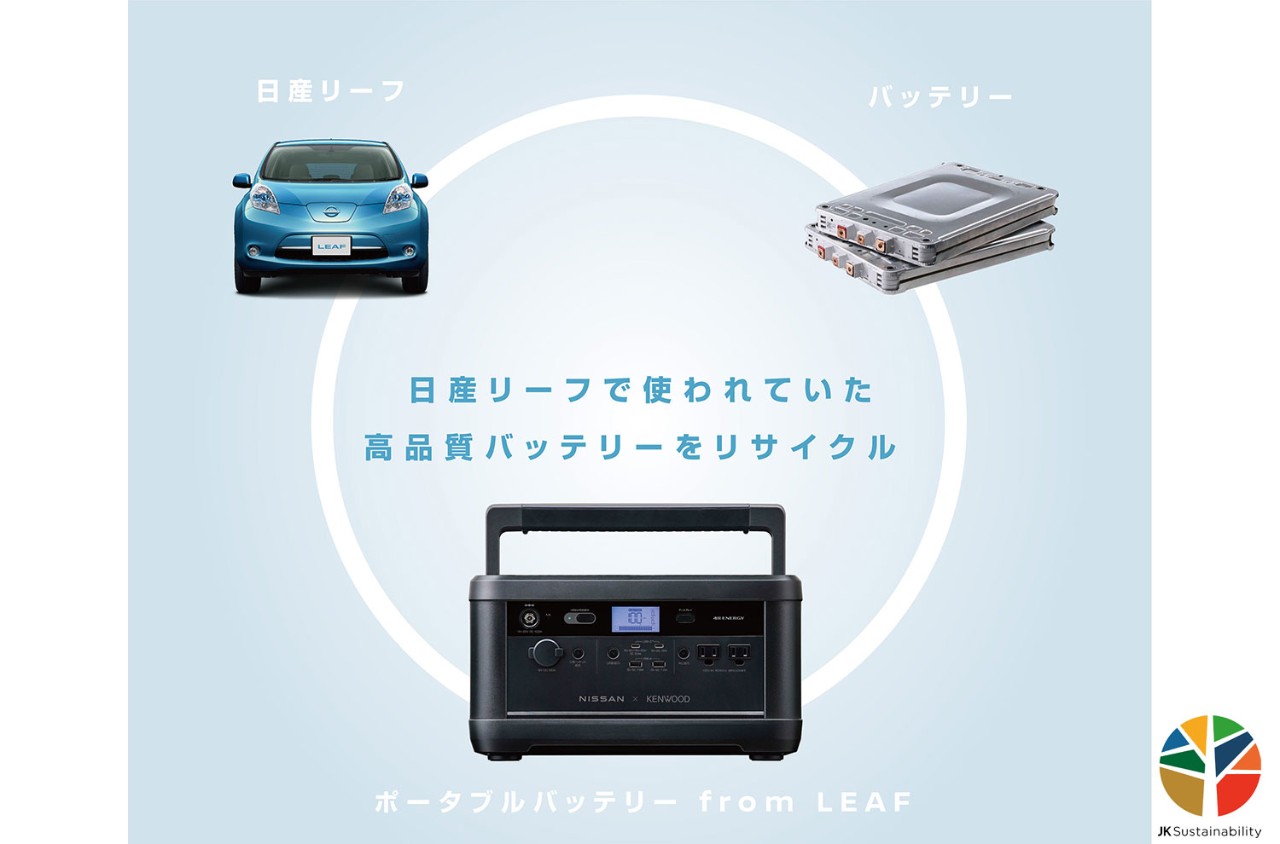
Reduction of Plastic Consumption Volume for Packaging Materials
We will promote initiatives to replace product packaging and cushioning materials with environmentally friendly recycled raw materials, thereby contributing to improved recyclability and effective use of resources.
Example 1
The 2024 model of car navigation systems for the domestic market newly adopted pulp mold as a product cushioning material.
Compared to the 2023 model, we have reduced the weight of plastic used in packaging materials by 66% and lowered CO2 emissions during production by approximately 47 tons※annually. We also jointly entered the 2024 Japan Packaging Contest with our co-developer and manufacturer Dynapac Co., Ltd. and won the Electrical and Equipment Packaging Category Prize.
※Based on our own calculation method
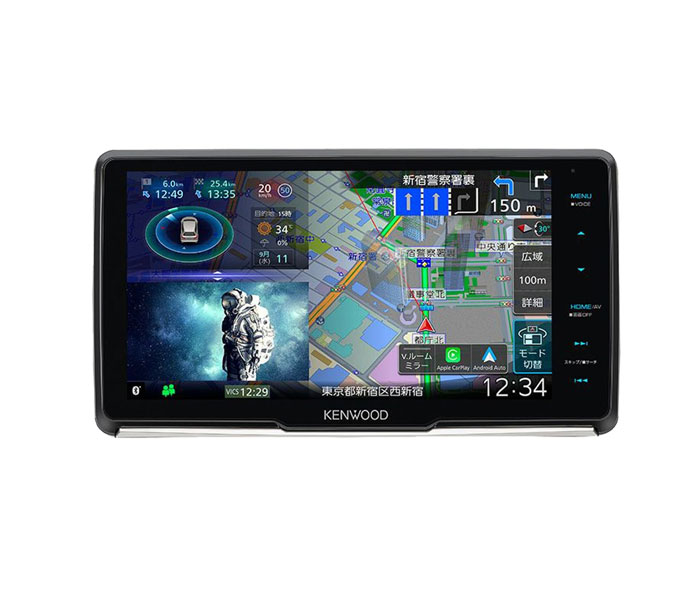
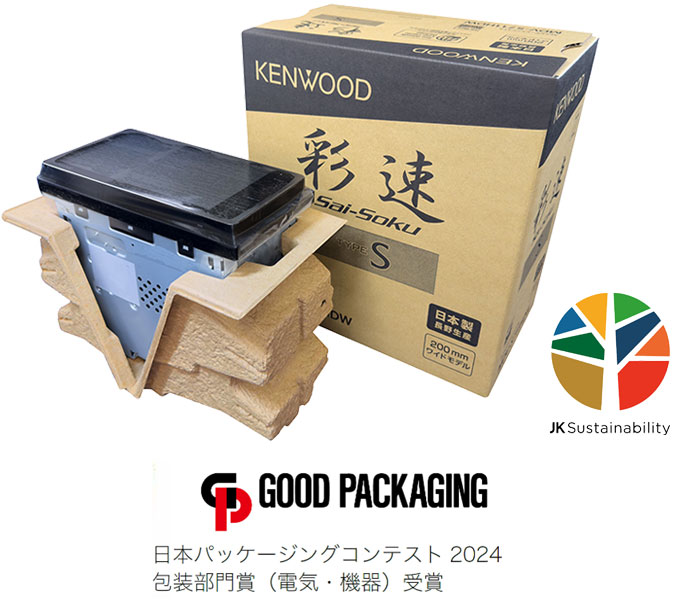
Example 2
In the 2024 release of the handheld amateur radio set TH-D75, we achieved a reduction of plastic consumption volume for containers and packaging compared to the previous model TH-D74 by switching the cushioning material to pulp mold.
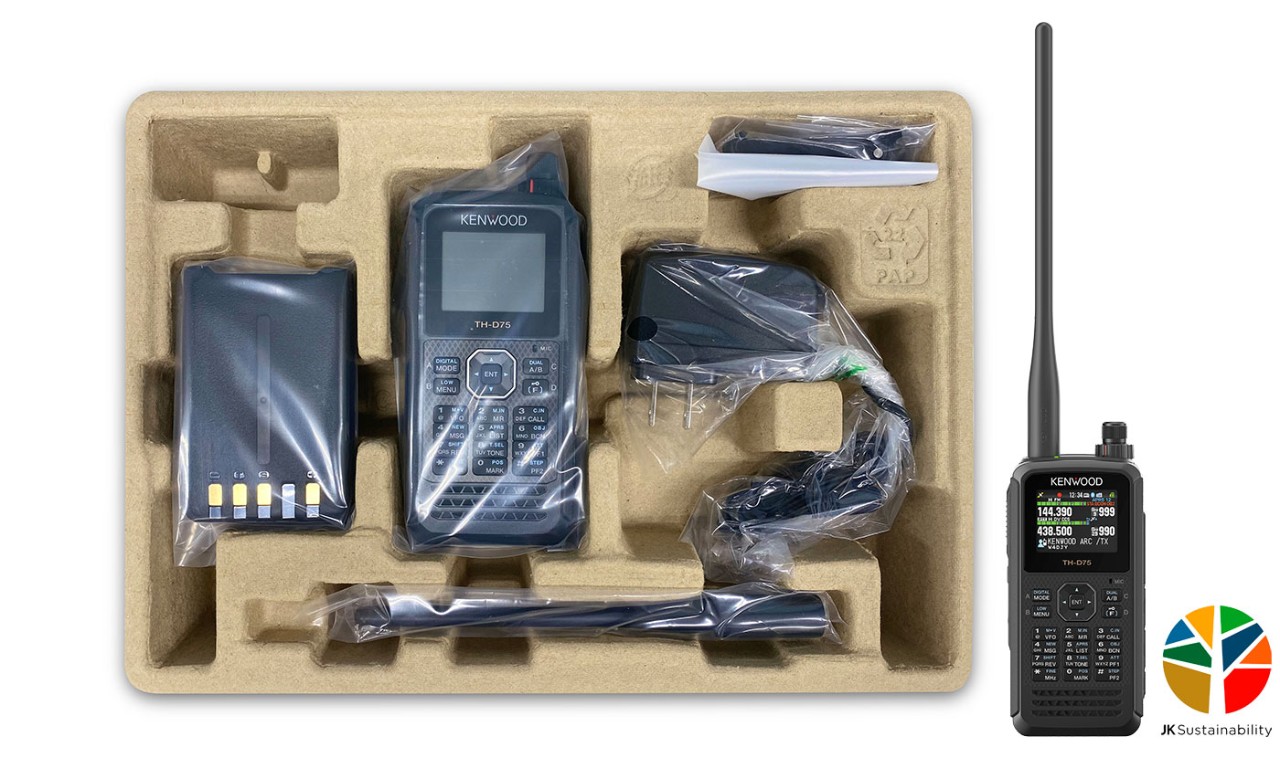
Handheld amateur radio set TH-D75
Example 3
Since 2020, we have been working on de-plasticization in packaging materials for headphones/earphones. We have unified all packaging materials for all headphones/earphones developed and sold after 2022 to paper-based materials.
In 2020, immediately after we began this initiative, the amount of plastic used in packaging for products sold was 154 tons, whereas this figure was 86 tons in 2023, a reduction of approximately 44%. As existing models are no longer sold in the future, we will continue working to further increase the rate of reduction in plastic use.
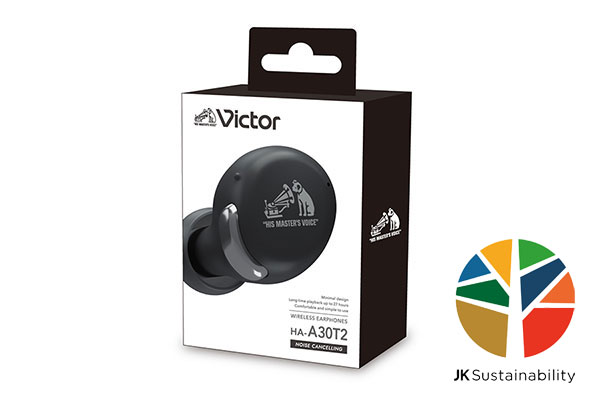
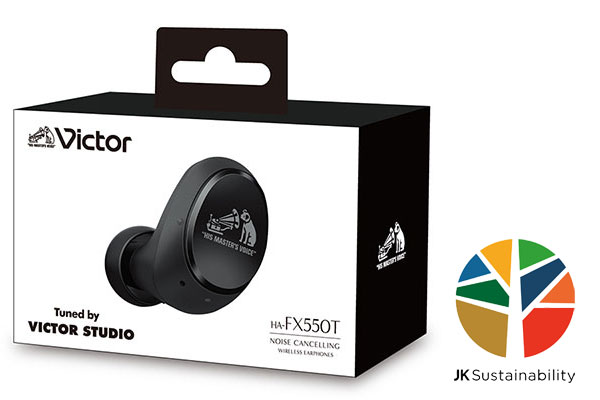
Reduction of Environmental Impact by Miniaturization
Example 1
The TCB-D239CR, a new digital simple radio repeater, has been miniaturized to about one-third of the packaging volume compared to the conventional TCB series. We have increased the number of units that can be loaded per volume and improved transportation efficiency. With miniaturization, the product became lighter, allowing us to eliminate the need for styrofoam as a cushioning material in the packaging.

The TCB-D239CR, A new repeater
Example 2
We made the body of the D-ILA projectors "DLA-Z7" and "DLA-Z5," which went on sale in November 2024, smaller by revising designs for the optical units, optical lenses, circuit boards, and other components. As a result, we reduced electricity consumption by approximately 33%, package size by approximately 30%, and plastic use in the main body of the projector by 18% compared with the previous "DLA-V50" model. We will contribute to reducing environmental impact across product lifecycles as a whole, including manufacturing, transportation, usage, and disposal.
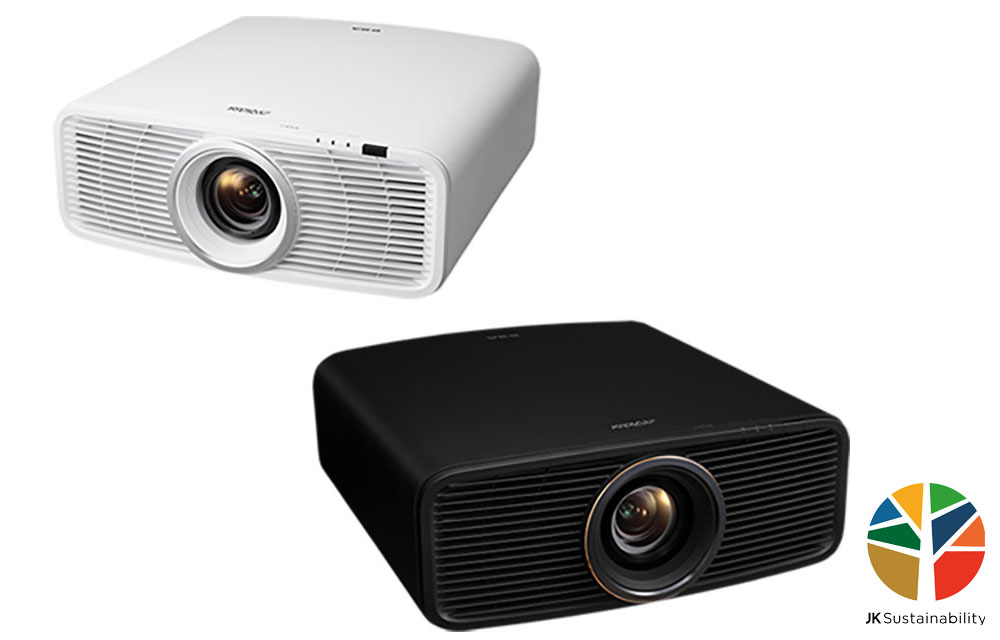
D-ILA Projector「DLA-Z7」「DLA-Z5」
Reduce Power Consumption of Bluetooth® Headphones
Bluetooth® headphones are designed to reduce power consumption. We are committed to minimizing our impact on the environment.

Reduce power consumption of Bluetooth® headphones
●Bluetooth® and its logo, being registered trademarks of Bluetooth SIG, Inc., are used by JVCKENWOOD under license from the company. Other trademarks and registered trademarks of their respective owners.
Responsible Parts Procurement (Packing Paper for Headphones)
We are promoting responsible parts procurement (Protecting forest biodiversity and the rights of local communities, indigenous peoples and workers) by increasing the usage rate of FSC* certified packaging materials for all headphones. We set KPI for each fiscal year to reduce the usage rate of FSC compliant materials.
* A certification granted by the Forest Stewardship Council to timber produced from properly managed forests.
Going forward, we will continue to expand environmentally friendly packaging products, apply labels with information on carbon footprints and greenhouse gas emissions, and develop environmentally conscious products by using carbon offsets while carefully observing global trends.

